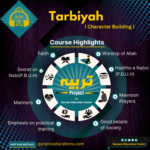Some effective tips to learn English fast and easy
1- Start speaking as soon as possible
If you are serious about learning to speak English quickly, the evidence is clear: having regular conversations with a fluent speaker is pretty much the only way.
The faster you can break the mental barrier of testing out your language skills out loud, the faster you will be able to speak confidently.
A 2016 study published by the University of Michigan demonstrated that students learning a language by having conversations over webcam tend to see much faster results than those using traditional methods. Scientists followed two groups of students as they began learning a new language:
- Group A was studying using grammar and vocabulary exercises
- Group B was learning by speaking, using video technology
After twelve weeks, it was found that Group A had made no significant improvement, but Group B had developed their language skills significantly. They had gained more varied vocabularies, performed better in listening comprehension tests, were better able to use grammar, and were able to speak more confidently.
Put simply, even if you study vocabulary exercises, grammar lessons and theory regularly for weeks, unless you learn English by speaking, you risk not learning how to draw these skills together. This is an easy mistake to make. How often have you heard someone say, “I can understand most of what I hear in English, but I am not very good at speaking it”?
2. Start reading
It has never been easier to find reading materials in English, or quicker to look things up on Google Translate if you get frustrated. If you aren’t quite ready to tackle the complete works of Shakespeare, try:
- Browsing celebrity gossip on easy-reading websites like Buzzfeed, Mashable or Upworthy
- Reading a book you love in your native language in the English translation
- Switching your search browser to show English language results by default
- Following more American/British/Australian public figures on Twitter and Facebook
If you find yourself stopping and starting a lot, try studying this list of “Fry words”. They are thought to be the first 1000 words necessary for reading in English, and make up around 50% of all written text.
3. Make yourself accountable
If you want to learn English fast, regular practice has to become a habit. But it’s no good just promising you’ll spend extra time working on your language skills. You have to find some way of guaranteeing you’ll practice even when life gets in the way.
If you have great willpower, making yourself accountable could be as simple as setting an alarm on your phone to remind you to do some learning at a certain time every day, such as when you come home from work. But for most of us, staying motivated to do anything new is far easier when someone else is depending on us.
In one study, The American Society of Training and Development (ASTD) found that you have a 65% chance of completing a goal if you commit to someone. Even more encouragingly: if you have a specific appointment with this person to discuss your progress, the chance of completing your goal rises to 95%.
You could search for a partner who is also learning English to regularly compare progress with, or simply find a tutor who you like and respect.
If you decide to try one of Preply’s tutors, watch videos from a few different people before taking a lesson. Search for someone you think you might connect with, perhaps a person with similar interests or life experiences to you. It is easy to stick to your language learning goals when one of our awesome tutors is rooting for you!
4. Set more useful targets than “I will become fluent”
In the language learning community, there is so much emphasis on “becoming fluent,” but when you are taking the first steps on your journey to learning English, is this a helpful goal? Probably not.
Fixating on fluency suggests that there is an endpoint to learning English, a point that is always out of reach. The truth is that everyone who speaks any language at all is still learning. Research has shown that most people continue to learn an extra word in their native language every day until middle age.
You will learn faster if you set targets relevant to your individual context. Better targets are ones that allow you to track your progress in relation to your own life. They are specific, measurable, attainable, relevant, and time-bound, or “SMART.” These are some great examples:
- Within six months, I want to be able to speak with my business partners and email them in English quickly without using a dictionary.
- Within three months, I want to be able to make small talk on common topics (weather, tourism, sports, etc.) with native English speakers.
- After nine months of learning English online, I want to score 100 points in the TOEFL exam, so I can apply and get accepted to Columbia University.









